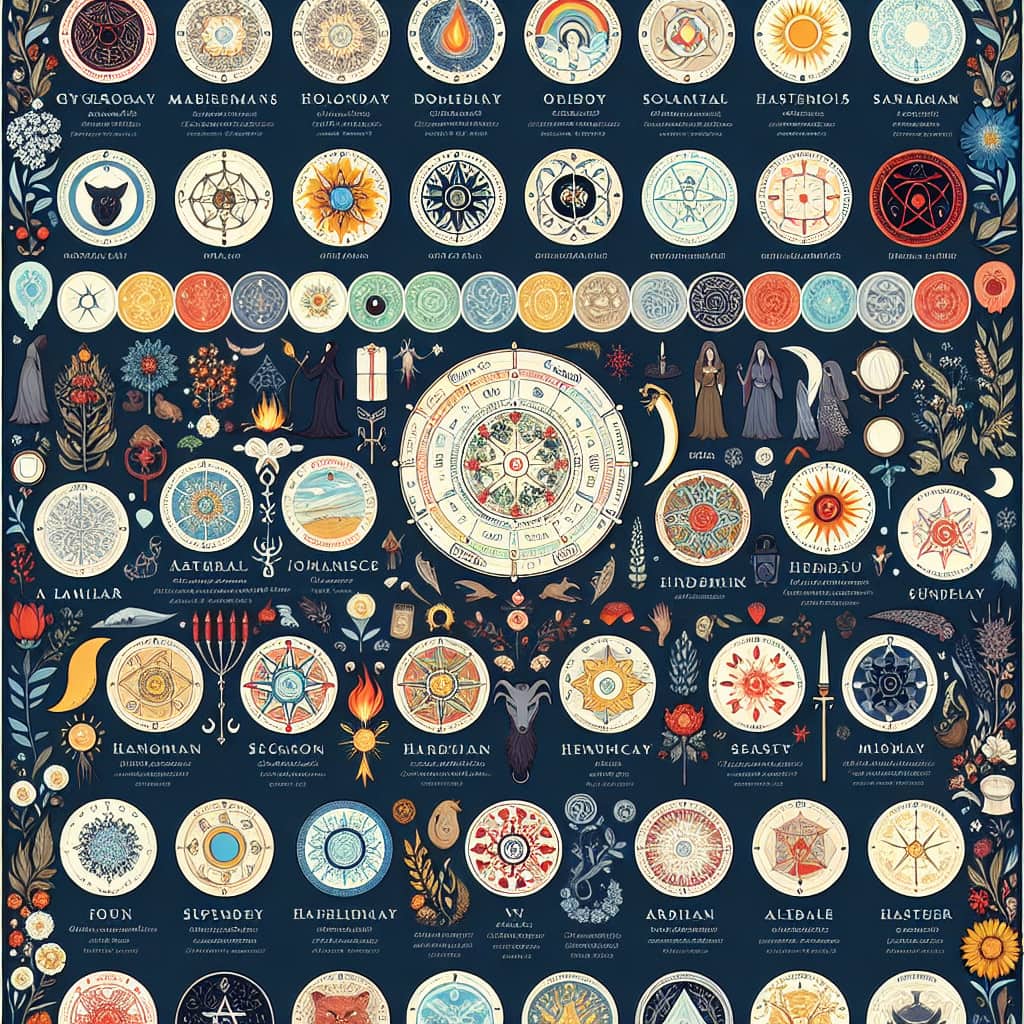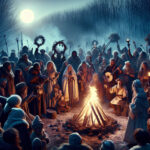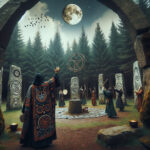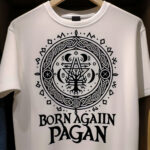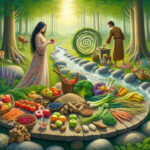Paganism is an ancient spiritual tradition that celebrates the cycles of nature and honors the divine in all forms. Celebrating the changing of the seasons and the turning of the Wheel of the Year is an important part of many Pagan paths. This article provides a comprehensive list of the most important Pagan holidays and their significance. We’ll explore the history and meanings behind each festival, along with ways to celebrate the holidays today. Whether you’re a seasoned Pagan or just beginning your spiritual journey, this guide will help you honor the sacred days of the year.
The term “pagan” is often used to describe a wide variety of ancient and modern religious and spiritual practices. In many cases, paganism is a term used to describe indigenous, pre-Christian religions that were practiced by people around the world. Pagan holidays are celebrations that are rooted in these ancient faiths and are still practiced today. Here is a list of some of the most common pagan holidays and their meanings.
Imbolc
Imbolc is a Gaelic festival that is celebrated on February 1st (or the first full moon of February, depending on the tradition). It marks the beginning of spring, and is a time for honoring the goddess Brigid, who is associated with healing, fertility, and creativity. Celebrations may include lighting candles, making corn dollies, and honoring the goddess through song and dance.
Ostara
Ostara is a holiday that is celebrated in the Northern Hemisphere on the Spring Equinox, which is around March 21st. It is a celebration of fertility, rebirth, and new beginnings. Celebrations may include decorating eggs, gathering flowers, and feasting with friends and family.
Beltane
Beltane is a Gaelic festival that is celebrated on May 1st (or the first full moon of May, depending on the tradition). It is a celebration of fertility, love, and passion, and is a time for honoring the god Bel. Celebrations may include lighting bonfires, dancing around the Maypole, and feasting with friends and family.
Litha
Litha is a holiday that is celebrated in the Northern Hemisphere on the Summer Solstice, which is around June 21st. It is a celebration of the longest day of the year and the abundance of the summer season. Celebrations may include gathering herbs and flowers, feasting, and lighting bonfires.
Lammas
Lammas is a Gaelic festival that is celebrated on August 1st (or the first full moon of August, depending on the tradition). It is a celebration of the first harvest of the year and a time for honoring the god Lugh. Celebrations may include baking bread, gathering grains, and feasting with friends and family.
Mabon
Mabon is a holiday that is celebrated in the Northern Hemisphere on the Autumn Equinox, which is around September 21st. It is a celebration of the second harvest of the year and a time for honoring the gods and goddesses of the harvest. Celebrations may include gathering fruits and vegetables, feasting, and giving thanks for the abundance of the season.
Samhain
Samhain is a Gaelic festival that is celebrated on October 31st (or the first full moon of October, depending on the tradition). It is a celebration of the end of the harvest season and a time for honoring the ancestors. Celebrations may include honoring the dead through rituals and offerings, lighting candles, and feasting with friends and family.
Yule
Yule is a holiday that is celebrated in the Northern Hemisphere on the Winter Solstice, which is around December 21st. It is a celebration of the longest night of the year and a time for honoring the god of the sun. Celebrations may include decorating evergreen trees, feasting, and giving gifts.
These are just some of the many pagan holidays that are celebrated around the world. Paganism is an incredibly diverse and vibrant spiritual tradition, and each holiday has its own unique meaning and traditions. Whether you are new to paganism or have been practicing for years, these holidays are a great way to connect with nature and honor the gods and goddesses.

Pagan holidays provide an opportunity to explore our spiritual connection to the natural world and to celebrate the cycles of life. They are a reminder of the importance of honoring the changing of the seasons and our place within the larger universe. By participating in these rituals, we can deepen our understanding of our own spirituality and gain a greater appreciation of the beauty and mystery of the world around us. These holidays are a reminder of the interconnectedness of all life and the power of connecting with nature and the divine.

